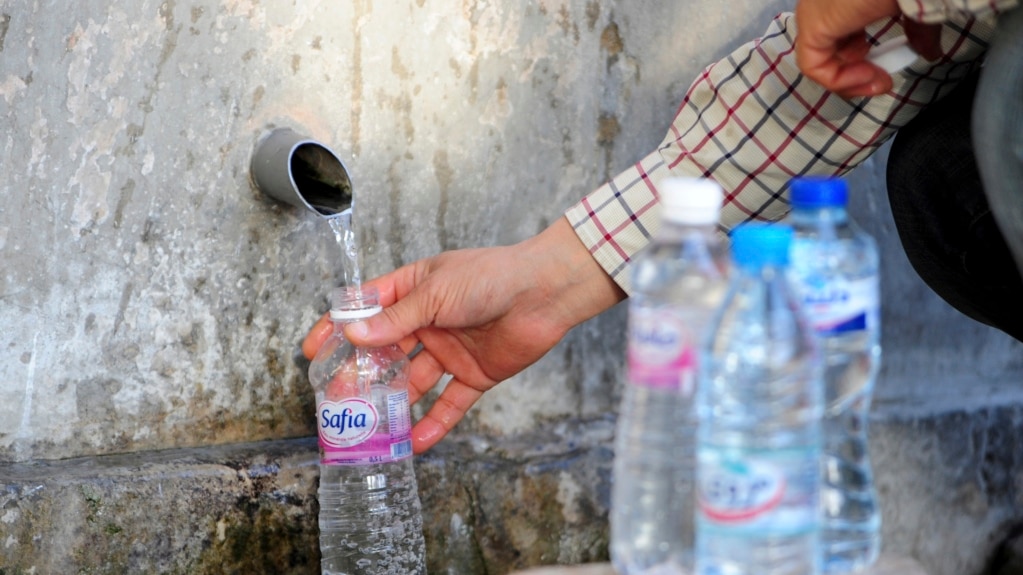Because of severely dry conditions, Tunisia has ordered water to be rationed with little warning to the people there.
Water is to be cut off for seven hours a day from 9 o’clock in the evening to 4 o’clock in the morning in most areas of the country, including Tunis, the capital.
The order will last from April until September. Those who do not ration water risk fines or jail time.
Households now need a supply of bottled water to wash, use toilets, and prepare meals during late night hours. Officials have also banned using drinking water on farms, green areas in cities, and for cleaning streets and cars.
Agriculture ministry spokesperson Raoudha Dridi said the order applies to all areas connected to the state-owned water system. Dridi added it does not include rural areas that do not get their water from the state system.
Water levels at almost all of Tunisia’s dams have decreased. Some dams hold as little as 17 percent of possible storage.
“Currently, we have reached the red line, the danger line in terms of water scarcity,” said Aymen Hmem. Hmem is a member of an environmental group in the coastal town of Menzel Temime, which has a dam nearby.
Tunisia is mostly desert. Temperatures can reach 40 degrees Celsius in parts of the country.
The country is also facing an economic crisis. Political tensions last year delayed talks with the International Monetary Fund for a $1.8 billion loan agreement to help finance the government. The Organization for Economic Cooperation and Development said Tunisia is facing inflation of around 11 percent and food supplies are low.
The water rationing comes during the Muslim holy month of Ramadan, when people enjoy big meals after sunset and water use increases. Ramadan is nearly over, but summer and the start of tourist season, when foreign visitors come, will increase demand for water. Tunisia depends on tourism for income. The country of 12 million people has around 850 hotels. Many are near the coast of the Mediterranean Sea.
Ministry spokesperson Dridi said hotels and hospitals keep reserves of water that they fill during the day and use when water is not running.
The fine for washing cars or other banned uses is between 20 to 320 dollars. Those actions also risk prison time of between six days to nine months. Reports say those who illegally use water can have their supply cut off by the state-owned water company, Sonede.
Radhia Essamin is with a group called the Tunisian Water Observatory. She said the decision to cut the water supply was not surprising. But she said it should have been carried out differently, so that people could have prepared themselves.
“That is why we consider these measures incomplete. Before taking any measures, the citizens must be...made aware of the importance of water rationing,” she said. “A booklet should have been published (explaining) water consumption, storage, timing and the quantity allowed to be stored.”
Abdelkader Hmissi lives outside Tunis. He said many people were caught by surprise by both the dry weather and measures to cut water use.
He was not.
Hmissi said he built a water tank two years ago, and now shares his supply.
“We found the solution in this tank. And my brothers and neighbors use it, too,” Hmissi said.
I’m Gregory Stachel.

